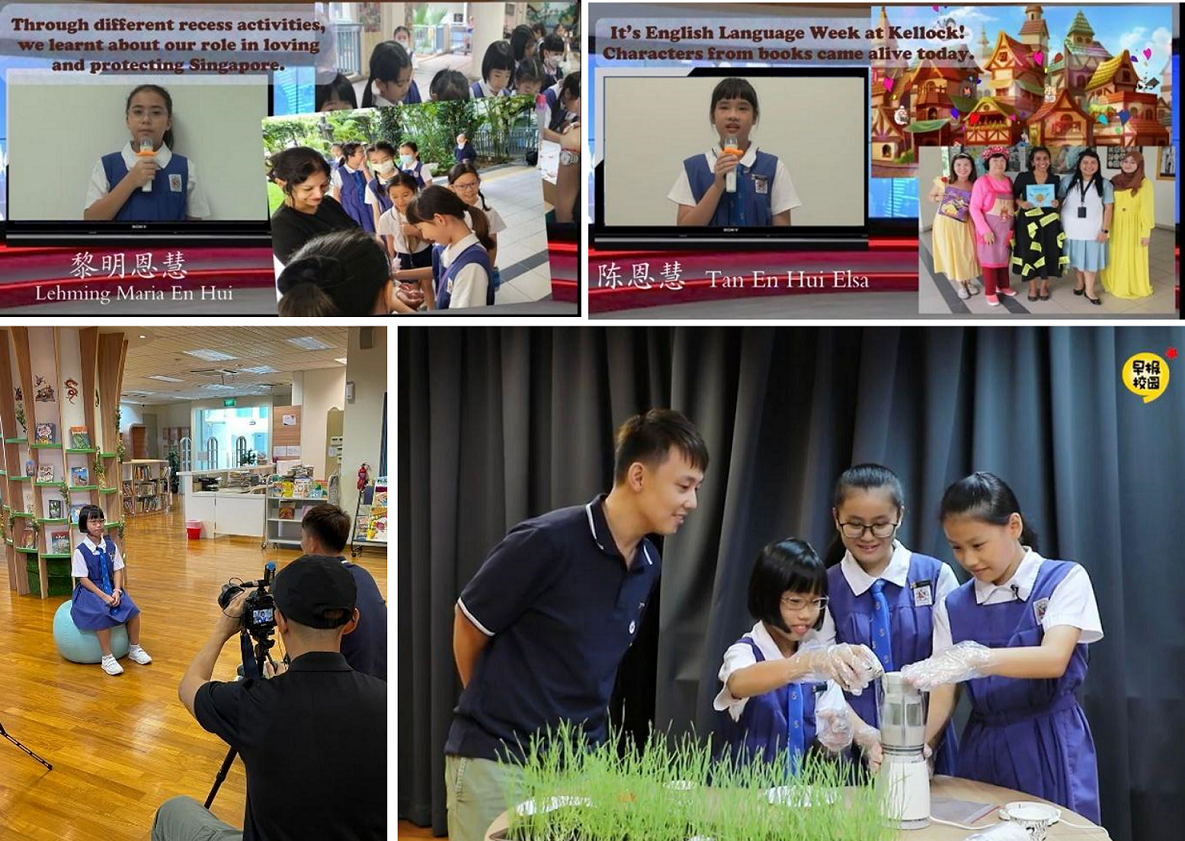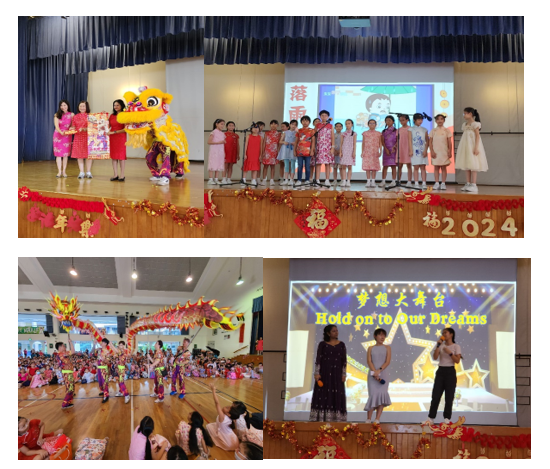Chinese Language
Chinese Language
Approach
A modular approach is adopted for the teaching of Chinese Language in
primary schools. This differentiated approach aims to create greater customisation
and flexibility in the teaching of Chinese Language.
All students will take the core module which constitutes 70-80% of the
CL curriculum time.
For those with interest and ability in the language, the modular curriculum
has the added advantage of allowing them to go further by taking the Enrichment
module after the Core Module. For students taking only the Core Module,
a corresponding school-based curriculum will be developed for the remaining
20-30% of curriculum time.
Students who enter school with little or no CL exposure will first take
the Bridging Module which constitutes 20 to 30% of the CL curriculum time
before they move on to the Core module. This is to provide additional support
and a more foundational start for this group of students.

Key Programmes
‘We are Campus Reporters’ Programme for P3 and P4
‘We are Campus Reporters’ Programme is especially conceptualised and designed
by the CL department to challenge and engage our P3 and P4 students who
show high readiness for CL. It aims to interest and motivate students to
speak Mandarin confidently, as well as to appreciate the power of the language
to communicate with others through the medium of television broadcasting.
Students will be introduced to the basic concept of television broadcasting,
and the techniques for news reporting, interviews and the creation of a
news report.

‘‘Four-Tier Composition Writing’ Programme for P5 and P6
‘Four-Tier Composition Writing’ Programme is another stretch programme
designed by the CL department to raise the writing standard of our Primary
5 and Primary 6 students who study Higher Chinese. The content is based
on the two types of writing format in the HCL examination. Through scaffolding,
the programme aims to train students’ critical and creative thinking skills.
Students’ interactive skills are also enhanced through Cooperative Learning
strategies. Besides teachers’ evaluation, self-evaluation, peer evaluation
and parents’ feedback or encouragement are incorporated to enhance students’
writing skills. Based on these evaluation/feedback/encouragement, students
revise their writing until they are able to produce a piece of work of
high quality, to the best of their ability.
Chinese New Year Celebration@Kellock
Chinese New Year is the festival that celebrates the beginning of a new year on the traditional lunisolar Chinese calendar. In Chinese, the festival is commonly referred to as the Spring Festival or Lunar New Year. Traditionally, the celebration will start from Chinese New Year’s Eve, the evening preceding the first day of the year, to the Lantern Festival, held on the 15th day of the year.
At CHIJ Kellock, we will usually celebrate Chinese New Year on the eve with a concert staged by the Chinese Department. Before the start of the concert, we will have an opening ceremony by the School Leaders. Each year, this inauguration marks the ushering of that specific year’s Chinese Zodiac animal into our school. Live show of Lion Dance or Dragon Dance will kick start the celebrations, which will bless the whole school with good luck. The school will be entertained with performances by our teachers, students, and parents. There are also games in between the segments to further engage our girls. The concert will end with the staff and students singing Chinese New Year songs together. Following the school tradition, the School Leaders will extend their well wishes to all staff by presenting them with Mandarin oranges on stage.


